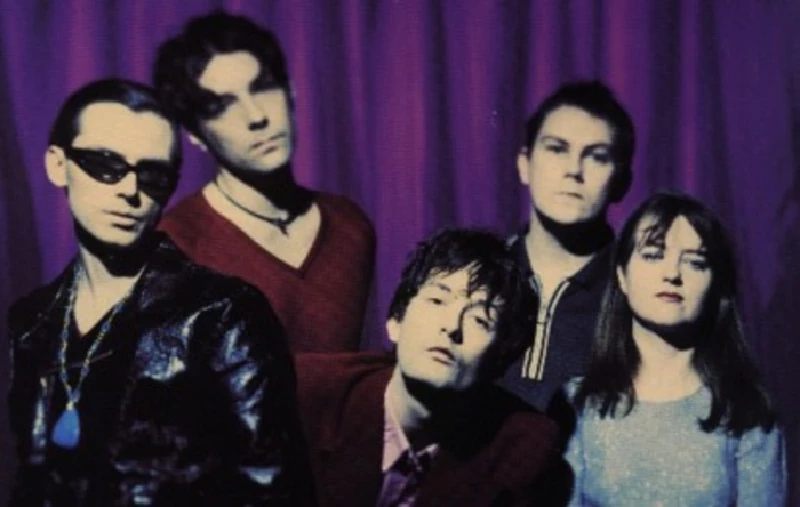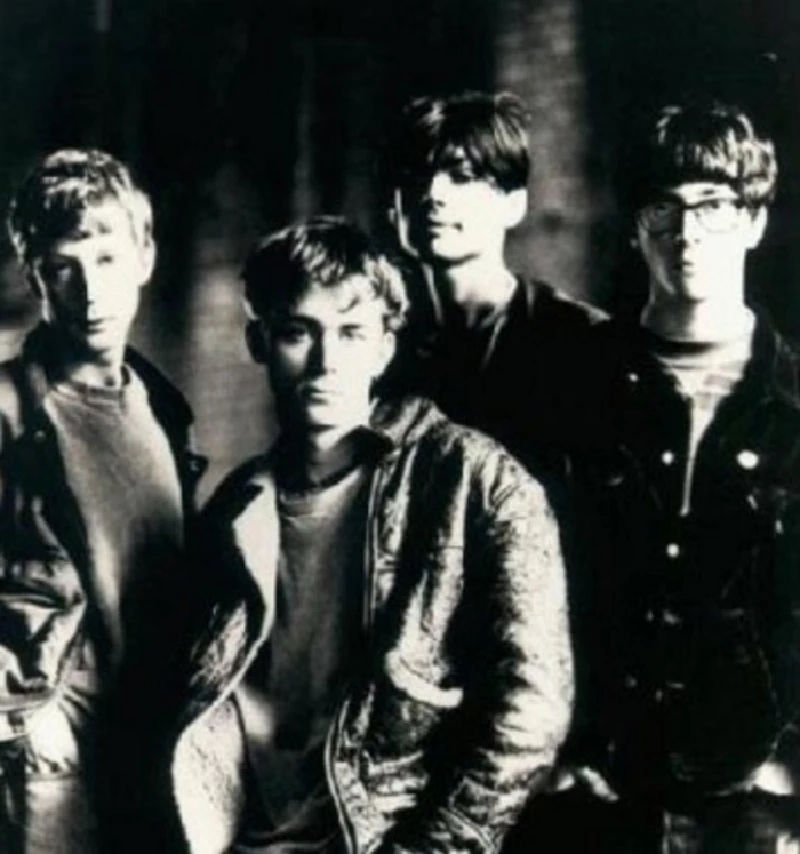Miscellaneous - Jarvis Cocker - My Part in His Downfall
by Anthony Middleton
published: 19 / 2 / 2009

intro
In the latest in our 'Soundtrack to Our Lives' column, in which writers write of the personal impact of music on their lives, Anthony Middleton tells of living in Camden in the early 90s as Britpop exploded
In the early nineties I found myself in a small, damp basement flat in Camden Town. This was worth rather less than my mortgage on it. The whole area seemed to be in negative equity, in fact. The pubs had not seen a makeover in decades, record shops had the stock they bought in 1981 and the street life was a never-ending picaresque parade of what were affectionately known as the Camden Crazies. In other words, it was fantastic. This was not the best of times musically, nor was it the worst of course. Madchester, though on the verge of collapsing in a crack induced heap, was still vital and Nirvana were electrifying. But this was no golden age. My musical taste had ground to a halt. Bar 'Screamadelica' and Teenage Fanclub, I was wallowing in a nostalgia for a time I hadn’t experienced. I was busily scouring second hand shops for Beatles, Stones and punk records. It is probably no exaggeration to say that I listened to the first Clash album in its entirety at least twice a day. Well, a slight exaggeration. I was probably only a few MOR years away from deciding that the Dire Straits and Police were worth a second chance and I would eventually have rolled up to see Eric Clapton at the Albert Hall. Then a friend gave me 'Modern Life is Rubbish'. Perhaps not a road to Damascus moment, but it certainly brought to my senses. I stopped buying safe old vinyl and started getting new CDs. I found a new musical scene that I not only liked, but one that was exploding into life in the pub around the corner. For probably the first and last time I found myself buying albums on the day of their release and going regularly to the same nightclub, Blow Up. My Life Story were even kind enough to release a CD named after the street I lived on, Mornington Crescent. The next couple of years were exciting. Camden sidelined Seattle as the music fulcrum of the world and became a veritable safari park for the spotting of musical talent, both modern and less so. Age and the mists of time perhaps play tricks with my memory, but I seem to recall even a quiet night in the Spread Eagle or Good Mixer would see Liam Gallagher playing dominoes with Supergrass, Graham Coxon chatting merrily to Morrissey while Jarvis Cocker, Damon Albarn, all of Menswear, Elastica and Sleeper would be partying away. Most of Madness would be serving at the bar and the Boo Radleys were manning the door. At the centre of this, friend and confidante to all, was me. Okay, my memory isn’t that bad and I made that up. But I did talk to Jarvis Cocker a few times. Usually I would be, er, tired and emotional, and he would look shiftily about trying to extricate himself from whatever drunken drivel I was spewing, although far too polite to just tell me to get lost. I wonder if my attentions helped to drive him into exile. Those of us who were too young for punk to be anything other than a distant rumble and felt too old (or unable to dance) to engage in with the rave scene were without a home and this vacuum Britpop filled. Seeing bands who weren’t either in decline or established in an isolated genre of their own (Costello) but rather new and part of a larger scene was exhilarating. Blur were of course the pathfinders. Their concerts on the back of 'Modern Life is Rubbish' and 'Parklife' were some of the greatest I have seen. In their slipstream came the likes of Pulp, Elastica, er, and Menswear. And Oasis of course, although their first album must go down as the turning point in musical history where history failed to turn. Britpop’s greatest asset was its lack of musical ideology. A free mix of 60s beat, new wave and all points in between, it had few, if any, no go areas musically. A series of bright, fresh albums appeared that employed a Pic’n’Mix attitude to influences. But this was also its fatal flaw. Britpop lacked depth and conviction. Too often its tongue was firmly in cheek. In the era of Post Modernism, it all started to feel lacking in foundation. While I was always in the trenches with Blur in the war with Oasis, I could understand why so many people felt more at home with 'Wonderwall' than 'Country House'. Oasis may have been derivative and meaningless, but at least they were sincere about it. Blur and Pulp got out quickly, producing the former’s eponymous album and the latter’s 'This is Hardcore' to indicate that the party was over. For me, Britpop’s legacy is not just a surprisingly small amount of decent music. By getting into Blur you could allow yourself to be introduced to a plethora of music; be it the Buzcocks, Syd Barrett, music hall, Pavement and much more. Pulp pointed me towards Scott Walker. I already had 'Revolver', so Oasis were not much help. So Britpop, while an also-ran to nearly all other scenes (such as punk, 2 Tone, glam, and both Summers of Love) both in terms of social significance and musical output, was important as a crossroads in music. I came out the other side of Britpop with a more open mind. Willing to listen to anything from the past and always trying to keep an eye on what is happening now. Yes, I still put the first Clash album on. But not all the time.
Picture Gallery:-

most viewed articles
current edition
Carl Ewens - David Bowie 1964 to 1982 On Track: Every Album, Every SongArmory Show - Interview with Richard Jobson
Bathers - Photoscapes 1
Colin Blunstone - Thalia Hall, Chicago, 16/7/2025
Visor Fest - Valencia, Spain, 26/9/2025...27/9/2025
Billie Eilish - O2 Arena, London, 10/7/2025
Robert Forster - Interview
Loft - Interview
John McKay - Interview
Editorial - July 2025
previous editions
Heavenly - P.U.N.K. Girl EPManic Street Preachers - (Gig of a Lifetime) Millennium Stadium, Cardiff, December 1999
Oasis - Oasis, Earl's Court, London, 1995
Trudie Myerscough-Harris - Interview
Beautiful South - Ten Songs That Made Me Love...
Pixies - Ten Songs That Made Me Love...
Prolapse - Interview
Paul Clerehugh - Interview
Doris Brendel - Interview
Simon Heavisides - Destiny Stopped Screaming: The Life and Times of Adrian Borland
most viewed reviews
current edition
Amy Macdonald - Is This What You've Been Waiting For?Sick Man of Europe - The Sick Man of Europe
Alice Cooper - The Revenge of Alice Cooper
Phew, Erika Kobayashi,, Dieter Moebius - Radium Girls
Davey Woodward - Mumbo in the Jumbo
Lucy Spraggan - Other Sides of the Moon
Blueboy - 2
Cynthia Erivo - I Forgive You
Philip Jeays - Victoria
Lapsley - I'm a Hurricane, I'm a Woman In Love
Pennyblackmusic Regular Contributors
Adrian Janes
Amanda J. Window
Andrew Twambley
Anthony Dhanendran
Benjamin Howarth
Cila Warncke
Daniel Cressey
Darren Aston
Dastardly
Dave Goodwin
Denzil Watson
Dominic B. Simpson
Eoghan Lyng
Fiona Hutchings
Harry Sherriff
Helen Tipping
Jamie Rowland
John Clarkson
Julie Cruickshank
Kimberly Bright
Lisa Torem
Maarten Schiethart